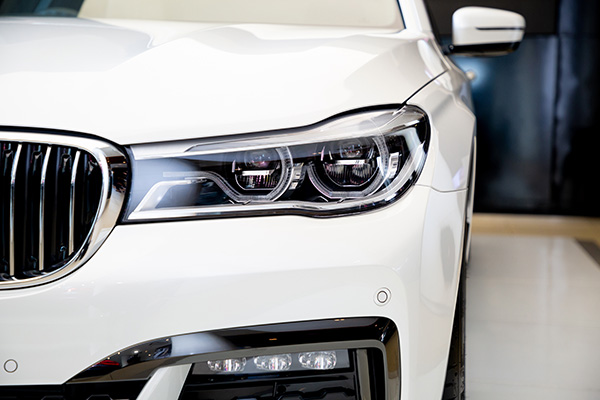
BMWs are known for their performance, luxury, and engineering precision—but even the best-built vehicles can run into issues over time. Newer BMW models, while packed with technology and impressive powertrains, still face a few common problems that every owner should be aware of. Being proactive about maintenance and repairs can help prevent small issues from turning into major ones.
Here are eight problems we frequently see in newer BMW models.
1. Oil Leaks from the Valve Cover or Oil Filter Housing
One of the most common issues in BMW engines is oil leakage. The valve cover gasket and the oil filter housing gasket are two known weak points. Over time, these gaskets can become brittle and start to leak. You might notice the smell of burning oil, see oil around the engine bay, or spot small puddles under the vehicle. These leaks may start small but can lead to bigger problems if they go untreated, especially if oil drips onto hot engine components.
2. High-Pressure Fuel Pump (HPFP) Failure
Many turbocharged BMWs, especially those using direct injection, rely on a high-pressure fuel pump to maintain performance. When the HPFP starts to fail, you may experience long cranking, rough idling, hesitation during acceleration, or even engine stalling. In some cases, a check engine light may appear. This is a known issue in several BMW turbo engines, and replacing the pump is often the only reliable fix.
3. Coolant Leaks from the Water Pump or Thermostat
BMWs commonly use electric water pumps and plastic thermostat housings in newer models. These components are more efficient but are also known to fail earlier than expected. When the water pump or thermostat goes bad, it often leads to coolant leaks or overheating. If your dashboard warns you about coolant levels or your engine starts to run hot, these parts may be the cause.
4. Timing Chain Wear in 4-Cylinder Turbo Engines
Some BMW engines, particularly the N20 and N26 4-cylinder turbo models, are known for premature timing chain wear. A rattling noise during startup or rough running at low RPMs can indicate a stretched or failing timing chain. If this issue isn’t addressed, it can cause serious internal engine damage. BMW eventually updated the chain design in newer models, but earlier versions may still be at risk.
5. Turbocharger Wastegate Rattle
Turbocharged BMWs sometimes develop a rattling noise that sounds like loose metal when idling or under light acceleration. This is often caused by play in the wastegate actuator or the flapper valve inside the turbocharger. While the sound may seem minor at first, it can eventually affect performance and boost control. In many cases, the entire turbocharger assembly needs to be replaced to fully resolve the issue.
6. Electrical and Sensor Malfunctions
With all the high-tech features in modern BMWs, electrical issues are fairly common. Malfunctioning parking sensors, adaptive cruise control warnings, or iDrive glitches may point to faulty modules or aging wiring. Key systems like the throttle, steering, and braking may also rely on sensors that can fail over time. These issues often come with a warning light or error message on the dashboard, and diagnostics are essential for pinpointing the source.
7. Carbon Buildup on Intake Valves
Direct injection engines—common in newer BMWs—don’t spray fuel over the intake valves, which means carbon can accumulate on them over time. This buildup restricts airflow and reduces engine efficiency. Symptoms include misfires, hesitation, and loss of power. Walnut blasting, a process that removes carbon using crushed walnut shells, is a common solution for this problem and is recommended as part of long-term maintenance.
8. Adaptive Headlight or Taillight Errors
Many BMWs come with adaptive lighting systems that swivel, dim, and adjust automatically. These systems are convenient but can trigger error messages when modules or motors fail. Water intrusion into taillight assemblies is another issue, especially in hatchbacks and sedans. If you notice flickering lights or warnings on your dash, it could be due to a failed lighting module or a corroded connection.
European Autowerks – BMW Repair Specialists in Virginia Beach, VA
At European Autowerks, we work with BMW owners every day and understand the unique issues these precision-engineered vehicles can face. Whether it’s a simple oil leak or a more complex turbo or timing chain problem, our team knows how to diagnose and repair it the right way.
If your BMW isn’t driving like it used to, or a warning light has come on, bring it in to our Virginia Beach shop. We’ll get your car back to peak performance with service you can trust.